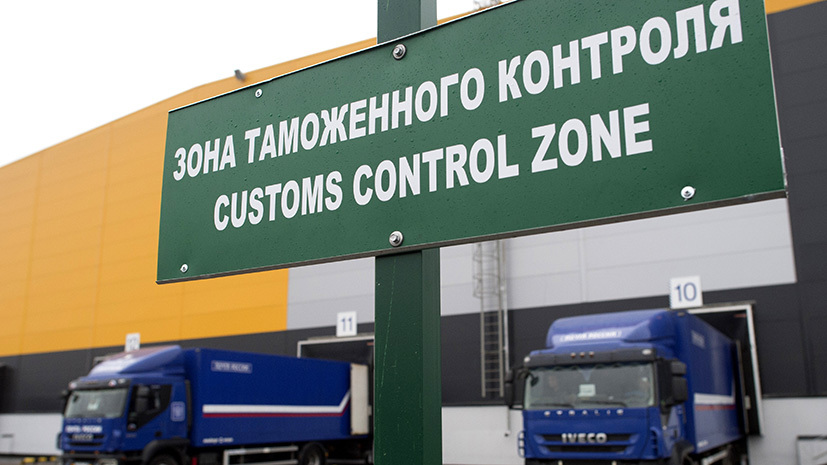Russian Prime Minister Dmitry Medvedev previously approved the Finance Ministry’s initiative to lower the threshold for duty-free import of goods from foreign stores by 2022.
The Office proposes to introduce a further reduction in the limit to € 100 from July 1, 2020, € 50 from January 1, 2021 and € 20 from January 1, 2022.
The current regulation states that without a duty for one month, you can get goods in the amount of not more than € 500 and weighing up to 31 kg. From January 1, 2020, the threshold will be reduced to € 200, however, the requirement to keep within this amount in one calendar month will cease to apply.
This means that you can buy goods worth more than € 200 per month, but for exemption from duties, the total value of things in each individual parcel should not exceed the indicated amount.
For exceeding the limit, you must pay 30% of the excess amount and at least € 4 per kg. After the limit is reduced to € 200, the collection amount will also decrease and amount to 15% of the excess amount and not less than € 2 per kg.
As Medvedev’s press secretary Oleg Osipov told RIA Novosti, Medvedev left the resolution on the corresponding letter from Deputy Prime Minister Anton Siluanov: “On the whole, I agree. Prepare proposals for consideration at the EurAsEC CPS. ”
According to Osipov, a final decision on reducing the threshold for duty-free import has not yet been made, the issue has yet to be discussed, including in the Eurasian Commission.
As TASS clarifies with reference to its own source, Siluanov argues the need for changes by the fact that when sending goods for personal use, VAT and import customs duty are not charged.
At the same time, these fees are present in traditional retail. The Ministry of Finance indicates that in this way there is an overflow of profits and taxes from Russia to online stores located abroad.
- The customs control zone of the new Russian Post logistics center, which opened on Borovsky Highway.
- © Ilya Pitalev / RIA News
Recall that from January 1, 2019, Russia launched an experiment on automatic payment of fees when making online purchases. The message of the Federal Customs Service, dedicated to the launch of the system, said that the initiative was aimed at creating a universal platform for cross-border Internet trading. The FCS clarified that the experiment covers online purchases worth more than € 500.
In February 2019, the department also said that they did not encounter any difficulties after lowering the threshold for duty-free import. In addition, the FCS indicated the prevailing value of purchases by Russians in foreign stores.
“We have 2 or 3% beyond the scope of a purchase price of € 20, so there are no difficulties with the introduction of a price limit. I’m sure that there will be no further ”, - quotes Interfax deputy head of the FCS Alexander Popov.
However, in April it became known that the volume of fees paid for online purchases in the first quarter of 2019 exceeded the corresponding figure for the same period of 2018 by three times. This was stated by the first deputy head of the Federal Customs Service Ruslan Davydov.
“The numbers are still small, but there is growth. It can be said relatively that it is about three times more than last year for the same period. This applies to both Russian Post and express carriers, ”TASS quoted Davydov as saying.
He clarified that the average cost for the bulk of purchases is less than € 200
Commenting on new possible measures to regulate Internet commerce, the Chairman of the State Duma Committee on the Financial Market, Anatoly Aksakov, noted that Russia is becoming a “dumping place” for goods from around the world due to the relatively high threshold of duty-free import.
“That is, you can import duty-free goods at a sufficiently high threshold, and, accordingly, this stimulates such work on the border with Russia. - said the deputy in an interview with RT. “As a result, we suffer losses, including budget ones.”
According to Aksakov, the current situation creates problems for domestic producers in Russia.
“Since our domestic producers of the same goods have to pay duties to go outside our country and sell their products,” the parliamentarian said.
He is convinced that the point of regulating the thresholds of duty-free import is not replenishment of the budget, but the creation of more favorable conditions for domestic production of goods.
EBay believes that such measures will give Russian companies operating in the e-commerce market an advantage over foreign ones. According to the director general of the company in Russia, Israel and the emerging markets of Europe, Ilya Kretov, lowering the threshold can affect consumers.
“Local players already have more opportunities, for example, the shortest delivery times and fast return of goods,” TASS quotes Kretova.

